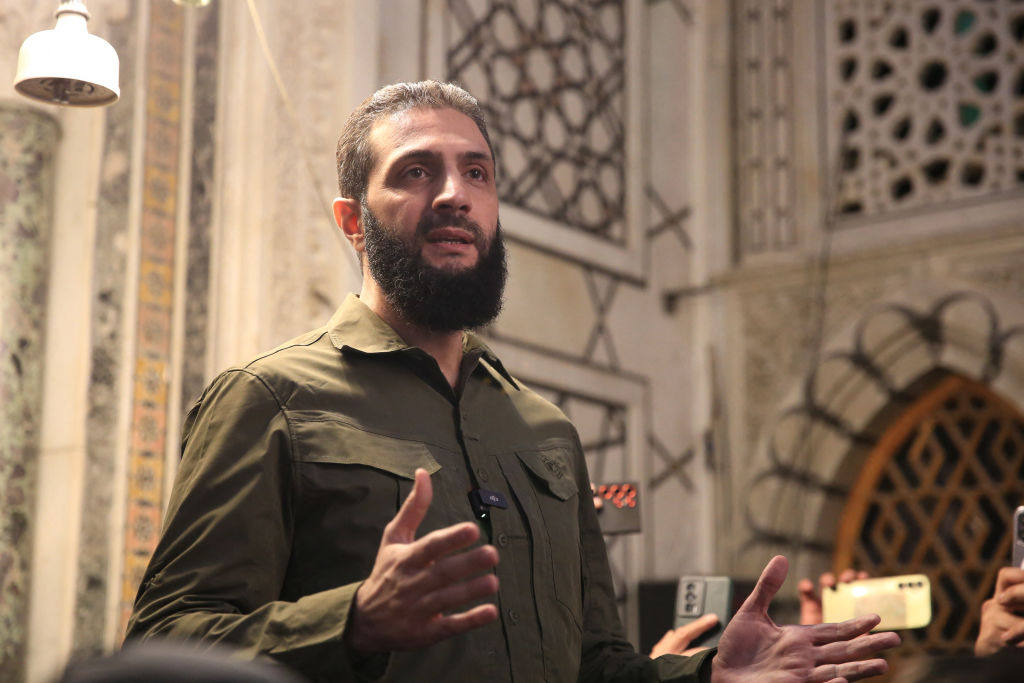The fall of Bashar al-Assad’s regime is a moment of liberation for Syrians. But his replacement by Hay’at Tahrir al-Sham (HTS), a jihadist organisation once known as Jabhat al-Nusra, is a cause for concern for countries such as the UK. In deciding the way forward, the most immediate question is whether HTS should continue to be on Britain’s list of proscribed terrorist entities. While there are trade-offs either way, the potential costs of taking HTS off the list outweigh the benefits — at least for now.
Pat McFadden, the Minister for Intergovernmental Relations, told the BBC this week that the Labour government is considering delisting HTS, with Western intelligence services judging that the group is no longer a direct threat to the UK. The current legal ban means that the British Government cannot communicate with HTS, a situation denounced by John Sawers, a former head of MI6, as “rather ridiculous”.
Sawers has a point, and undoubtedly the primary benefit of delisting HTS would be that Britain could more easily pursue efforts to shape events in Syria moving forward. States such as Turkey and Qatar will be involved in a HTS-run Syria, and their priorities are unlikely to match London’s. Britain could, for instance, make the delivery of humanitarian aid that would help HTS stabilise its regime. It could also provide reconstruction funds conditional on HTS protecting minority groups, such as Christians and Alawites, as it has promised to do. To send funds of any kind to HTS at the present time is a criminal offence.
Similarly, keeping HTS on the blacklist and moving towards a policy of isolating the regime might be counterproductive. HTS leader Ahmad al-Shara, also known as Abu Muhammad al-Jolani, has given the group an extensive makeover in the last eight years. There is good reason to think this evolution is not solely a public relations gambit. For example, despite ongoing concerns, minorities have been treated very differently in HTS-ruled areas than they were under Isis. If there is no payoff for al-Shara in taking steps that make HTS less objectionable to the “international community”, it could strengthen the hand of HTS elements which always regarded this path as a betrayal.
However, the risks of a “swift” delisting are even more serious. If HTS turns to heavy-handed repression after Britain has effectively legitimised the group, it would be highly embarrassing. HTS’s main argument for acceptance is that it has abandoned transnational goals and is focused solely on Syria. Yet, under the organisation’s umbrella, there remain a number of foreign jihadist groups, whose ultimate objectives are outside Syria. To delist HTS before we have any sense of what is going to happen with such groups would be rash.
Another element is domestic: it greatly complicates counter-extremism and to some extent counter-terrorism efforts if the law is trying to suppress support for a group’s ideology when the Government is simultaneously recognising the group as a legitimate interlocutor.
The better approach for now is probably to keep HTS on the proscribed list and engage the group covertly through the intelligence services. That way, the UK can reach a clearer picture of what is being dealt with and test how amenable the group is to following through on promises relating to security and human rights. Israel is known to be following this course, and so, it seems, is the US. In this scenario, HTS would receive the political benefit of overt contact as the endpoint of engagement, not the start.










Join the discussion
Join like minded readers that support our journalism by becoming a paid subscriber
To join the discussion in the comments, become a paid subscriber.
Join like minded readers that support our journalism, read unlimited articles and enjoy other subscriber-only benefits.
Subscribe